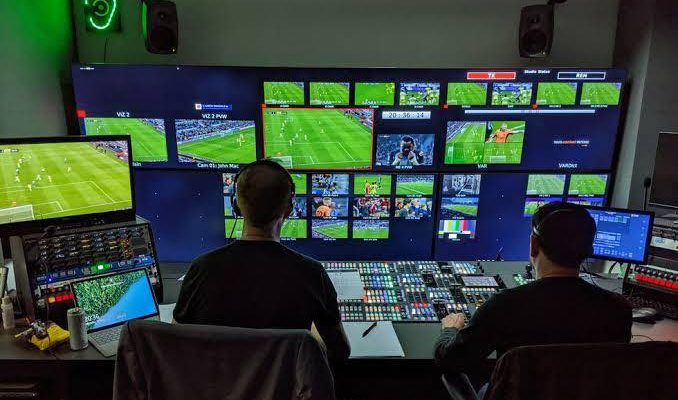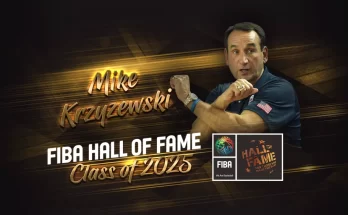The Europa League is supposed to be a celebration of football across the continent, where the best teams outside the Champions League square off in passionate clashes that highlight different cultures, tactical approaches, and the raw drama of knockout competition. Yet even before the group stage match between VfB Stuttgart and Celta Vigo had properly concluded, the focus was no longer on the football itself but on a storm of controversy surrounding the Video Assistant Referee system, better known as VAR. What was supposed to be a fair and transparent tool to ensure justice on the pitch once again became the headline-maker, overshadowing the actual performances of both sides. Stuttgart and Celta Vigo had been primed for a classic European night, but instead the conversation is dominated by allegations of unfairness, questionable decisions, and outrage from fans, pundits, and even the players themselves.
The controversy began in the first half, when Stuttgart, who came into the game buoyed by their impressive Bundesliga form, appeared to have taken a deserved lead. Serhou Guirassy, their talismanic striker, converted a smart ball through the defense with his trademark clinical finish. The home crowd roared in celebration, and even the players seemed to sense momentum was firmly in their favor. However, the joy was short-lived. The referee was quickly called to the pitchside monitor after the VAR team flagged a potential offside in the buildup. Replays showed that the margin was infinitesimally thin, perhaps the width of a bootlace, and after several minutes of deliberation the goal was disallowed. Stuttgart fans erupted in anger, waving scarves and chanting against what they saw as the cold, clinical nature of VAR robbing them of a beautiful footballing moment. It was not just the decision itself but the manner in which it was delivered that raised questions—lengthy delays, unclear communication, and a sense that the spontaneity of the game was being drained away.
That was only the beginning. Later in the match, Stuttgart again thought they had scored when a thunderous shot from the edge of the box ricocheted off the post and was bundled over the line in the ensuing scramble. Once again, the celebration was cut short by VAR intervention. This time, the system detected what was deemed a handball during the tussle in front of goal. Stuttgart players argued furiously that the ball had struck the chest rather than the arm of their midfielder, but the referee stuck with the decision after consulting the monitor. The sense of injustice was palpable. What should have been a thrilling 2–0 lead instead left Stuttgart goalless and increasingly frustrated.
Celta Vigo, for their part, were not immune to VAR’s heavy hand either. Midway through the second half, they were awarded a penalty after a Stuttgart defender appeared to clip their striker inside the box. The referee pointed to the spot, and Vigo’s players gathered in celebration. Yet moments later, VAR again intervened. Multiple angles were reviewed, showing that the contact might have been minimal and that the striker had perhaps exaggerated the fall. After another prolonged pause, the decision was overturned, leaving the Spanish side equally incensed. Their bench erupted, with coaching staff waving their arms and demanding answers. By this point, both teams felt victimized, and the match itself had become secondary to the ongoing sideshow of video technology.
The climax of the controversy came in stoppage time. With the score still locked and tensions running high, Stuttgart were once more denied what looked like a clear penalty. Their winger darted into the box, only to be bundled over by a clumsy challenge from Vigo’s fullback. The referee initially waved play on, but players gestured furiously for VAR to review the incident. Fans held their breath, expecting the referee to be called over. Instead, after a brief check from the VAR room, play resumed without further action. The stadium erupted in fury, with boos cascading down from every corner. Stuttgart players surrounded the referee at the final whistle, demanding explanations that never came. For many supporters, it felt like a robbery—an injustice that robbed their club of a crucial Europa League victory.
What made the scandal even more potent was the timing. This was Stuttgart’s big return to European competition after years of struggle and rebuilding. Fans had dreamed of nights like this, of hearing the Europa League anthem ring out in their stadium, of battling historic clubs from other countries. Instead of joy, they were left with bitterness, their dreams marred by technology and human interpretation. Celta Vigo too were denied the chance to enjoy their own moments, as VAR not only canceled potential breakthroughs but also drained the flow of the game. Instead of two teams writing their own story on the pitch, the narrative became one of stop-start interruptions and opaque decision-making.
In the hours after the final whistle, reactions poured in from across Europe. German media labeled the night a disgrace, arguing that VAR had robbed VfB Stuttgart of a deserved victory. Spanish outlets took a similar tone, highlighting how Celta Vigo had also been denied their fair share of opportunities. Pundits debated endlessly on television and social media, dissecting each controversial call frame by frame. Former referees were brought in to give their opinions, some defending the decisions as technically correct, others criticizing the rigidity of rules that seem detached from the spirit of the game. The word “scandal” quickly began to trend, as fans of both clubs united in frustration against the system rather than their opponents.
Perhaps the most telling sign of how deeply the incident cut was the reaction from the players themselves. Guirassy, normally calm and composed, openly vented his frustration in post-match interviews, stating that football was being taken away from the players and handed over to machines. Celta Vigo’s captain echoed similar sentiments, pointing out that while fairness was important, the constant interruptions and microscopic scrutiny were stripping away the essence of the sport. Social media was flooded with clips, memes, and angry commentary, with fans sarcastically suggesting that VAR, not either of the two teams, had been the true star of the evening.
The Europa League organizers now find themselves in the spotlight. UEFA has long defended the use of VAR as a necessary step toward fairness, citing the need to eliminate clear and obvious errors. Yet the Stuttgart–Celta Vigo match demonstrates the pitfalls of the system: when decisions are so marginal that they rely on imperfect camera angles, when subjective interpretations dominate, and when communication to the fans in the stadium is lacking, the technology can create more controversy than it solves. Calls are already growing for reforms, ranging from limiting VAR’s use to only blatant errors, to introducing live audio explanations from referees, to completely overhauling the system.
For Stuttgart, the sense of grievance lingers. Their return to Europe should have been a joyous occasion, a testament to their resurgence in German football. Instead, their fans left the stadium chanting against UEFA and the referees, a sour taste replacing what should have been pride. For Celta Vigo, the anger is just as real—they too saw legitimate opportunities stripped away. Ironically, both sets of fans may end up united by their shared disdain for VAR, a rare phenomenon in football where rival supporters often agree on little. The match that was meant to showcase competition across borders instead highlighted the shared frustrations of the modern game.
In the days to come, the debate will rage on. Was VAR used correctly? Were the referees too rigid in their interpretation of the rules? Or was the technology itself flawed, unable to capture the human nuance of a sport played at lightning speed? One thing is certain: the Stuttgart versus Celta Vigo clash will not be remembered for moments of brilliance or tactical battles, but as yet another chapter in the ongoing saga of VAR controversies in European football. For fans longing for the pure drama of the game, it is a painful reminder that sometimes the biggest opponent is not the rival on the pitch but the system meant to oversee it.



